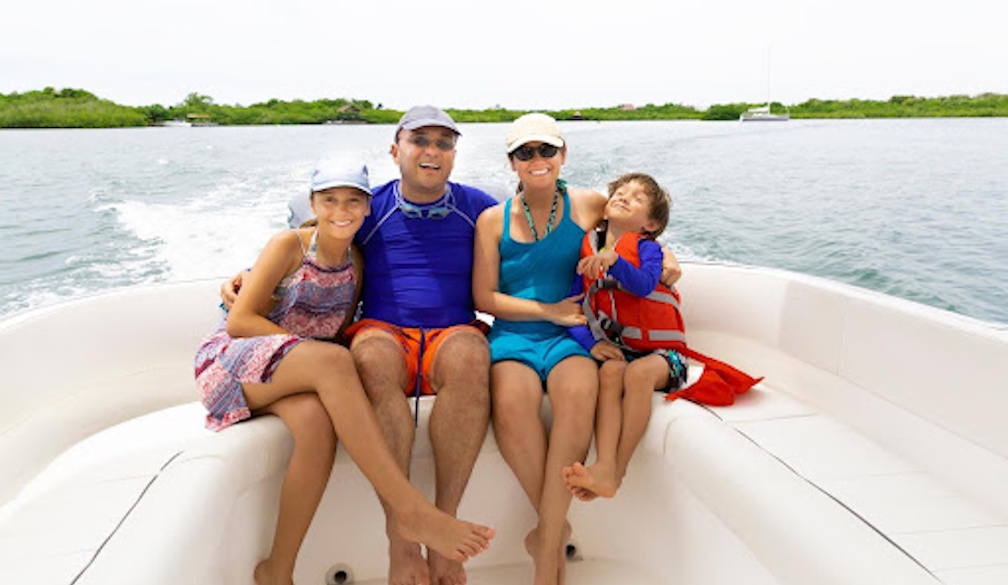Parents' reactions can lessen or worsen pain for injured kids
- Written by Erin Brown, Ph.D. Candidate, The University of Queensland
 Medical procedures on your kids are stressful for you - but your stress can make their pain worse. from www.shutterstock.com.au
Medical procedures on your kids are stressful for you - but your stress can make their pain worse. from www.shutterstock.com.auMost kids are going to be injured at some point during their childhood. It will be stressful for the child, and potentially even more so for the parent. Parents can suffer feelings of guilt and anxiety, and a minority will also develop post-traumatic stress following their child’s injury.
Some new research (yet to be published) has looked at family coping and distress during a dressing change following a burn injury in kids. The 18-month study observed 92 families during their young child’s (one to six years) first burn dressing change at a Brisbane hospital.
Parents who reported they were more anxious or distressed were less able to support their child during the procedure. This decreased the child’s ability to cope and increased the child’s distress, which was measured by their ability to be distracted by toys and conversation, compared to crying or screaming during the dressing change.
Ratings of child anxiety and pain during the dressing change were also greater for children of parents who were less able to support their child during the dressing change.
Our minds have a limit to what they can focus on at once. Therefore, a mind that is preoccupied with other things will perceive the pain as less than a mind that is focused on the pain alone. This is why we think distraction is helpful for the child during the dressing change.
The study’s findings show parents need to receive additional support following their child’s injury and during medical treatment. This additional support would benefit the parents, and also the child. A less distressing treatment means less trauma for all, as well as lower pain and anxiety experienced by the child.
Research also shows lower anxiety is linked with quicker wound healing in children. Quicker wound healing means less medical intervention, and kids can get back to school and the playground faster.
No-one likes to think of their child sustaining an injury. But it can be handy to have a few tips up your sleeve if you do need to take your child for medical treatment, for yourself as much as for your child.
What to do
• Distract your child early on in the treatment (toys, food, music, pictures, TV, conversation, nursing, pacifier. You know what works best)
• Be close by. Reassuring touch tells them you are with them
• Some kids like to watch, others don’t. If they want to, let them but also keep encouraging distracting behaviour
• Encourage your child to do deep breathing exercises. This is something you can do together to slow down your and your child’s heart rate
• Remain calm and confident, even if you find the treatment difficult to watch
• Say things like “look at me and squeeze my hand,” “who is that on the TV?,” “can you tell the nurse what we are going to do after this?,” “remember when we went to the park and […],” and “show me how you do deep breathing”.
What to avoid
• Scaring them with how painful the medical treatment will be or “how bad it looks”
• Criticising their behaviour
• Minimising their experience (“you’re okay,” “almost done”)
• Encouraging the pain (“I know it hurts a lot”)
It’s common for parents to feel upset themselves following a young child’s injury. All parents struggle with anxious and guilt-ridden thoughts about their child’s health from time to time, so it can help to treat yourself with kindness and remind yourself you’re doing what you can to give your child the best medical care.
It helps to stay focused on helping your child during stressful medical treatment, rather than worry about the injury severity. If you’re concerned about your own coping during the treatment, invite a second adult along to support your child if you need to take a break.
You can also seek further support through talking with your child’s nurse or social worker, or your local doctor.
Erin Brown receives funding from Children's Hospital Foundation.
Justin Kenardy receives funding from Children's Health Foundation Queensland
Authors: Erin Brown, Ph.D. Candidate, The University of Queensland
Read more http://theconversation.com/parents-reactions-can-lessen-or-worsen-pain-for-injured-kids-75397





